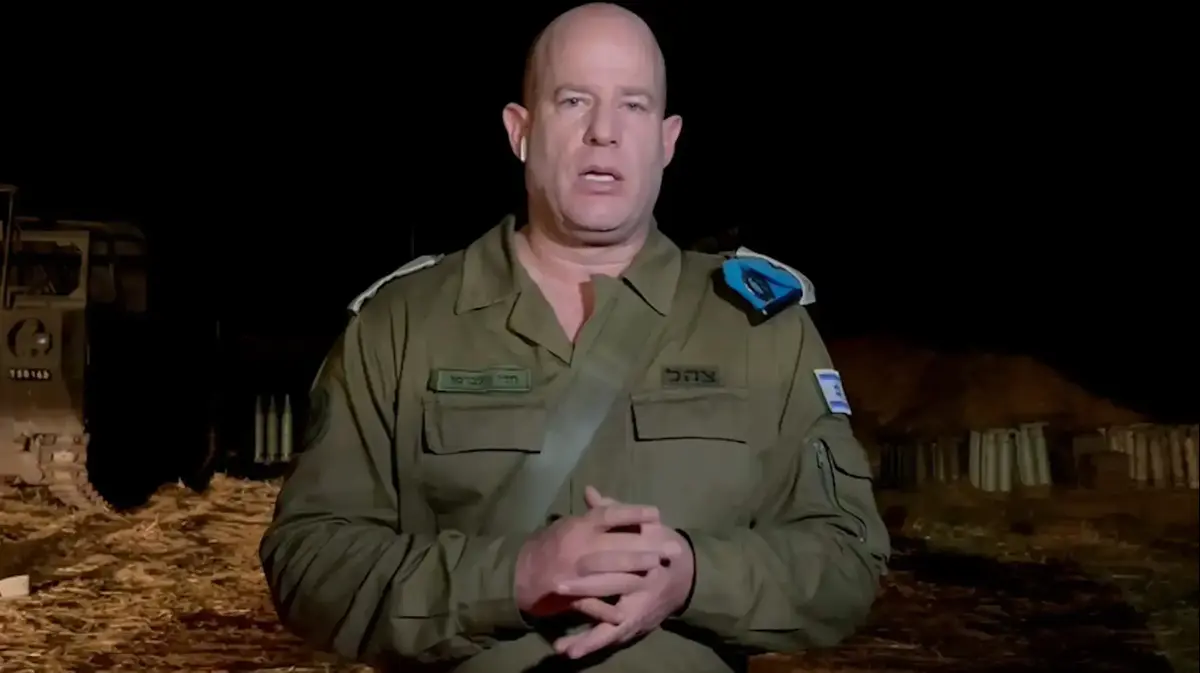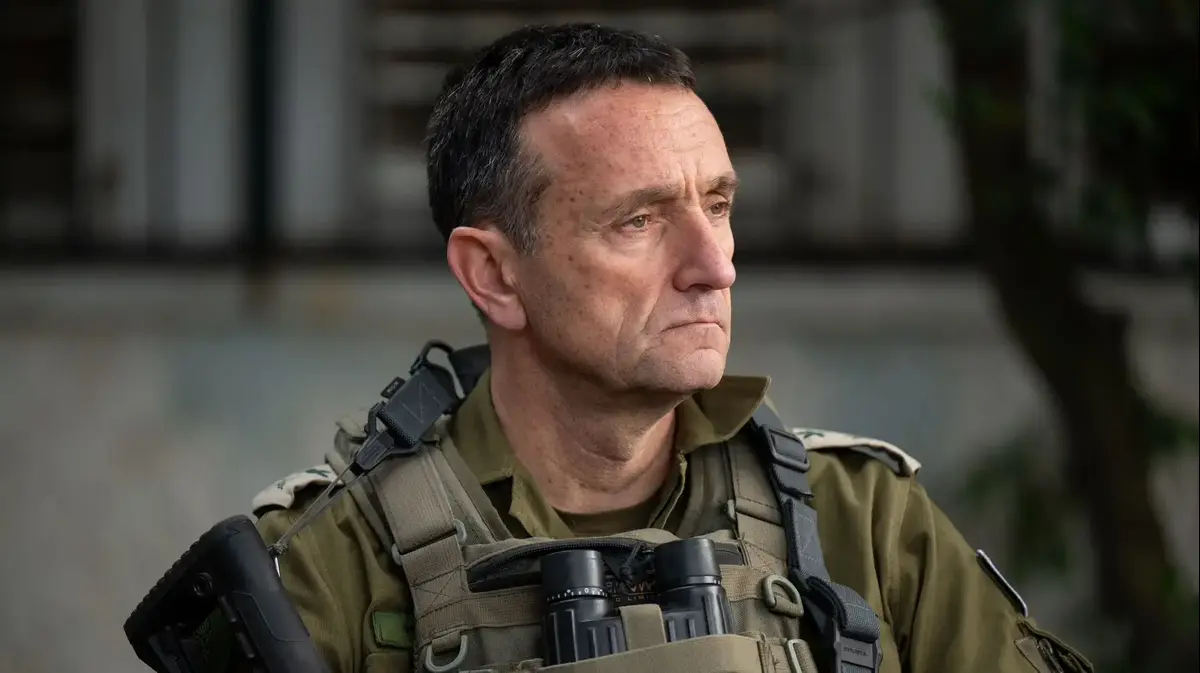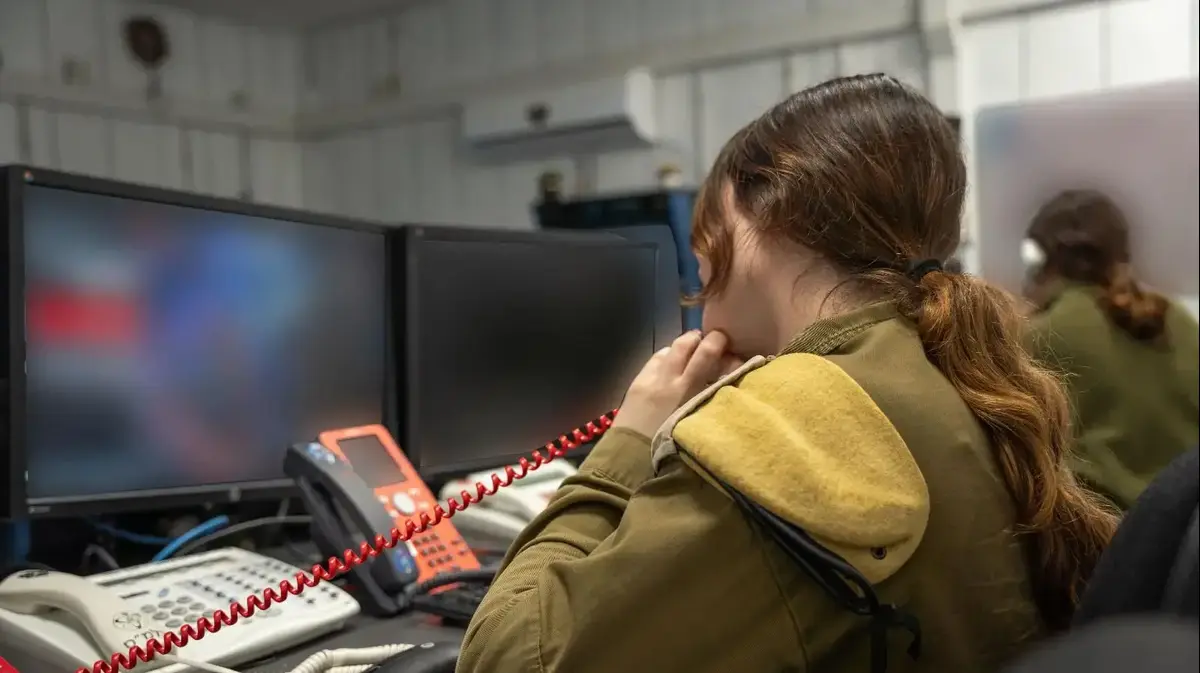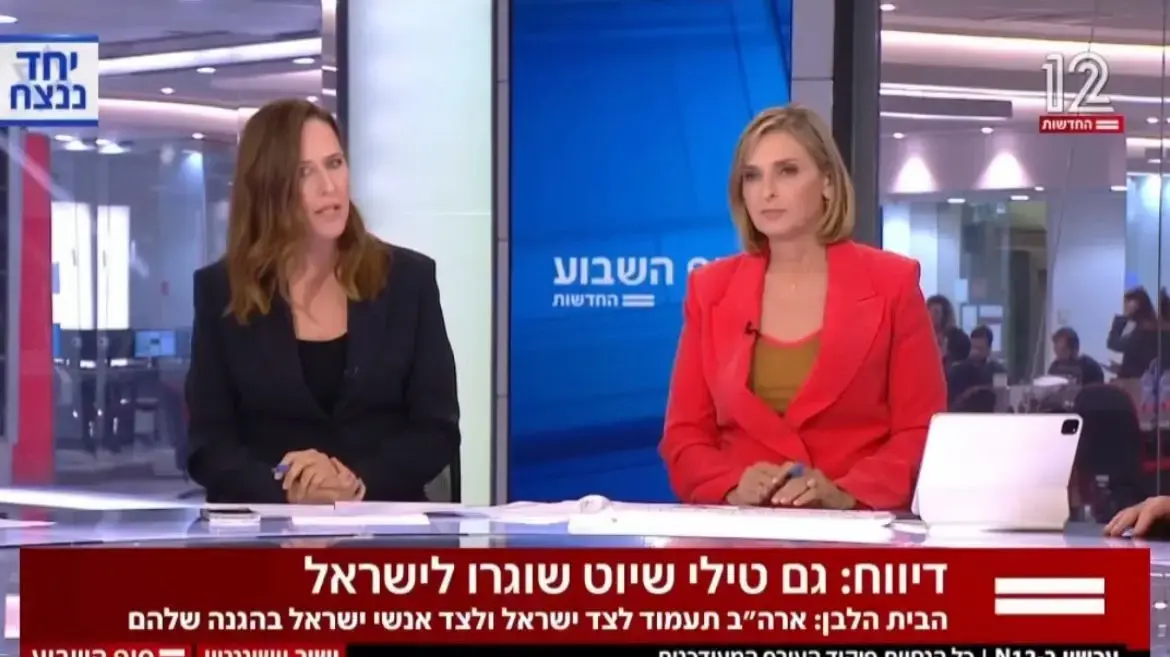culture
TV
TV review
70s show: Why do we still have to listen to the IDF Spokesman's propaganda?
A lot of phenomena are repeated in every round of fighting, but one of the most frustrating of them is the need to hear a uniformed man delivering useless propaganda every night anew.
Today, when we are all connected to everything that is happening in real time, it may be time to stop underestimating our intelligence and rule that the enemy has been "severely beaten"
Tags
Echo Silverman
The White House
TV review
Ilan Kaprov
Friday, 14 May 2021, 00:07 Updated: 09:45
Share on Facebook
Share on WhatsApp
Share on general
Share on general
Share on Twitter
Share on Email
0 comments
Fighting rounds, as their name implies, are a circle.
One long replay in which one can predict almost exactly what will happen in the social-media arena.
Take for example "What is the value of a proportional response?"
A sentence that everyone who has undergone a military operation in Israel must know.
The immortal excerpt from "The White House" in which President Jed Bartlett (Martin Sheen) hits a table and demands that the army chiefs around him stop preaching to him about military responses that appear to be "pacing someone out of pocket."
Like clockwork, one can wait for this specific segment to come up on social media time after time, operation after operation, as "proof" of Israel's erroneous policy, in the eyes of some.
The fact that the entire segment is a prelude to Bartlett's understanding that the use of proportional force is exactly what is required of itself, does not matter at all, and in any case most of the actors in the segment did not bother to watch the series or episode.
This is another stage in the round, another V in the circle.
More on Walla!
In front of our eyes live: The lynching in Bat Yam that aired here 11 will be remembered at the moment as a founding and traumatic television
To the full article
Exactly the same degree of certainty can be attributed to another phenomenon of operations: the IDF Spokesman's show. Close your eyes for a moment and imagine this conversation unfolding. The facilitator turns to a serious officer explaining the duty with the blue beret, who looks straight at the camera. Eyes again and check yourself: Was "We hit the enemy hard" was there? And what about "Only when they go back to the ground, will they understand what happened to them"? "Painful prices"? "Quality goals"? "We destroyed", "We hit" "We attacked," "We denied capabilities"? Yes, you seem to have caught everything. But if we all know exactly what the IDF Spokesman will say, no matter what happens on the ground, maybe it's time to wonder what the value is in the fact that he is seen on our screen every day?
The IDF Spokesman's unit, unlike its leader, is also one of our main sources of knowledge and information during combat. Heads speak. Notices of security incidents, instructions to the home front, all of which go directly to the flashers and presenters. Their conveying messages about what the IDF is interested in and is not interested in is really a way of life.
And yet, every evening anew, this strange ritual will repeat in which Brigadier General Hedi Zilberman will appear on the screen of every channel you watch and deliver the same cliché propaganda, as if we were all watching the Hebrew version of North Korea TV.
The facilitators will ask, ask, wonder about the goals of the operation and the finish lines, about the effectiveness of the operations - and Zilberman is his.
And like a lot of other things that are on the screen these days and causing hair pulling, it’s hard to understand why the hell we are forced to watch it.
Should the fact that Gaza is burning encourage a nervous mother who does not know if she will be able to go to the shelter with her children?
Should the fact that "we prepared hard in Hamas" make it easier for a father to explain to his son why a horrifying and traumatic sound wakes him up from a night's sleep?
Does the fact that Hamas headquarters swords will bring peace to frightened adults who do not leave the security guard? If there is no real dialogue with Zilberman anyway, why should we be the captive audience of his message page?
More on Walla!
Missiles in the air, riots in the streets, and pyromaniacs in the studio enjoy every moment
To the full article
Every evening anew this strange ritual is repeated.
Hedi Zilberman (Photo: IDF Spokesman)
The IDF Spokesman is a remnant of an old worldview in which the IDF controls our war narrative. He sketches the face of the battle, raises morale and encourages the spirit of the home front, describes how they prepared the enemy - and we are expected to listen carefully and not disturb, because the speaker is still a busy person. But like censorship, we no longer really need it to know the truth about what's going on. The fact that a small terrorist organization shuts down two airports, completely disrupts life in two-thirds of Israel, dictates when a round begins and ends, initiates anti-tank and drone strikes, launches 1,600 missiles in three days and informs us exactly how and when it will hit us - is the complete opposite of the picture That Silberman dictates. No matter how many times we repeat "severely beaten", reality does not align with the message. Zilberman, for all intents and purposes, simply lies to the public in Israel every evening, as if this is his job.
Every beginning speaker will tell you that transparency and reliability are among the most important keys in conveying messages.
When the man who talks to us does so behind a screen of military secrecy, and tells us that what we see and feel is not true, he is harming not only resilience but also the ability to take anything he says seriously.
Like so many things in recent weeks, this façade of the illusion of control is crumbling before our eyes, making it clear that nothing is beneath it.
Just as the police are unable to defend our security but refuse to admit it, the IDF is unable to deal with a brutal terrorist organization and refuses to tell us about it. There is no professional criticism of the IDF here of course, for that there are people with Uniqlo.
But if the military is interested in having a dialogue with us, maybe it's time for him to respect our intelligence a little?
And if he is not interested, we have the right to refuse to hear his clichés.
More on Walla!
Ayala Hasson was attacked with stones by young Jews in Lod: "Can't stop crying"
To the full article
The reality of life in Israel has never been simple, these days it seems more complex than ever.
The attempt to deal with this complexity by rendering and constructing reality, is doomed to failure.
Even if we look at it with determination and uniform, and set in a firm tone what we want from it, it will not take shape as we wish.
The way to deal with complexity is to recognize it, reflect on it and deal with it together.
After all, if the IDF expects us to be strong for him every time, maybe it's time for him to treat us proportionately.
Share on Facebook
Share on WhatsApp
Share on general
Share on general
Share on Twitter
Share on Email
0 comments









